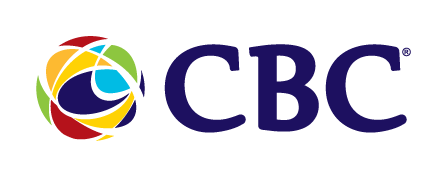
The United Kingdom’s insurance regulator, Financial Conduct Authority, FCA, wants the 402 domestic insurers that it supervises “to complete reviews of the value of their products” by December 3.
Six months before, it published “guidance setting out expectations for insurers and insurance intermediaries to consider the value of their products in light of the exceptional circumstances arising from the coronavirus pandemic”, according to Asia Insurance Review.
FCA is not alone among regulators worldwide that have taken specific actions to protect consumers’ interests during these “exceptional circumstances”.
Local insurance consumers are also facing extraordinary times due to COVID-19. Has our regulator, the Financial Services Commission, FSC, mandated insurers here to conduct reviews to assess the value of their products or to consider the introduction of other consumer-centric measures?
The NCB Financial Group-owned Guardian General Insurance – without any prodding from the FSC – recently rolled out, in what is called a soft launch, its Preferred Garage Programme, PGP. (Full disclosure: I do not own shares in NCB; Guardian General has been my motor insurer for many years.)
PGP came after Guardian General’s Jamaica Cares Plan in April, which saw discounts being offered to new and existing customers who remotely effected coverage. That plan was implemented as a direct result of the pandemic. It is not clear if PGP, which is voluntary, is part of the Jamaica Cares Plan or is something extra. Nevertheless, it adds value to the segment of the company’s customers that buy comprehensive motor policies whose vehicles are damaged in collisions.
The now-defunct Dyoll Insurance Company introduced something like PGP over 20 years ago. It was limited to one repairer, DB Motors. The latter was reportedly partly owned by the insurer. Happily, the Dyoll-DB Motors alliance did not last too long.
PGP is unlike the Dyoll-DB Motors plan. Guardian General does not own shares in the preferred repairers. Garages will be independently owned and managed. The association between the repairers and the insurer will be governed by contract.
Guardian General’s immediate Trinidadian parent’s website suggests that PGP is a well-entrenched feature of that market. Eight repair shops are in the network. Clients can go straight to any of the garages in order to start the motor claims process. This is expected to save customers time and money. PGP in Jamaica will begin with one repair shop and will be gradually increased to include others.
What criteria does Guardian General use to select its preferred repairers? What steps have been taken to ensure that the repairs are carried out to a high standard of quality? Answers to these questions are vital to get a sense of the importance that the insurer places in creating additional value for its policyholders.
Preferred garages must meet the following criteria under PGP: adequate security; adequate administrative facilities, including Internet access, technology to send and receive electronic mail, and a restroom for customers; adequate plant and equipment, including car lifts (or hoists), welding plant, air compressors and related fixtures, enclosed painting booths, floor jacks, bodywork tools and refinishing equipment, work tools and diagnostic equipment, and the like; facilities for workshop staff and technicians; safe working environment; qualified technicians; adequate insurance; compliance with COVID-19 rules; and a reputation for carrying out high-quality repair work.
The assessment of the selected garages is undertaken by competent independent consultants.
Here are some of the important features of PGP: the plan is voluntary, repairs will be completed quickly and efficiently, wrecking service is included, and the preferred garage will offer a 90-day warranty on all repairs.
Items 3.14 to 5 of the FSC’s Market Conduct Guidelines were framed to impose obligations on insurance companies to “have policies and processes in place to handle complaints in a timely, fair, and effective manner and policies and processes to handle claims in a timely and fair manner”. It is unlikely that when the guidelines were being drafted, something like PGP was contemplated, even though motor repairers play an important but often unrecognised part in the motor claim value chain. It would be most interesting to learn what the FSC thinks about PGP.
Guardian General should be congratulated for introducing PGP. I believe it will create benefits to the company’s policyholders when they are involved in accidents. It will be interesting to see how quickly other motor insurers move to replicate the PGP plan and, more importantly, what consumers have to say about it.
– Cedric E. Stephens provides independent information and advice about the management of risks and insurance. For free information or counsel, write to [email protected].








